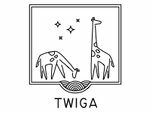Background
Work package 4 (Biosphere), one of the 4 main TWIGA work packages implemented at Makerere university focuses on monitoring vegetation in general and crop development in particular, coinciding with the sixth objective to produce accurate maps of land cover, land use, and crop status. However, because African agriculture is characterized by small-scale and mixed cropping patterns, the project will employ Citizen-scientists and UAVs to produce the necessary spatial and temporal granularity.
TWIGA Makerere identified Nakasongola district due to its vulnerability to effects of climate change and already established linkages, to be the place for the implementation of WP-4 activities. In line with that and with support from the district production department, 16 citizen scientists were identified and training was conducted from 7th Dec, 2020 to 10th Dec 2020.
Training Objectives
- To introduce and orientate citizen scientists in the TWIGA project
- Train citizen scientists on the production and management of the TWIGA target crop- Maize
- To train citizen scientists on photographic data collection and transmission using smartphones.
Training report
- A total of 16 citizen scientists (CS) and 2 sub county agricultural officers from 2 sub counties of Nakasongola District namely; Kalungi and Kalongo were trained.
- Thirty (30) spiral bound training manuals which had been overlooked at planning and budgeting for the training were produced and provided to each participant.
- Strict adherence to Covid-19 SOPs were emphasised throughout the training.
Day 1:
- Training started on Monday 7th December 2020. Makerere University was represented by Prof. John B Kaddu and Dr.Tutillo who delivered opening remarks on behalf of the head of department of Zoology, Fisheries and Entomology, CONAS, Makerere University. The District Production office delegated the subcounty agricultural officers to officiate the training because they were actively involved in the district quarterly meeting together with other departments.
- CS expressed enthusiasm about the project, and were especially motivated by the unique benefits of the project including the acquisition of a smart phone.
- The CS received a practical training in good maize agronomy and integrated pest and disease management

A: Prof John Kaddu opening remarks on behalf of the Head of Department of Zoology Makerere University 
B: Nicholas Olango training citizen scientists on good maize agronomic practices
Day 2:
- CS received smart phones and accessories namely; Phone jackets, screen protectors, Selfie sticks, power packs and carry bags.
- Members were introduced to the basics of smartphone use including: smart phone layout and functionality, introduction to android smartphone operating system which included home keys, phone navigation, execution of apps, settings and camera to mention but a few.
- CS were then introduced to ODK data entry with emphasis on the use of the VegMon ODK collect app.
- The day was concluded by an introduction to smartphone camera use and photography
Day 3:
- CS were taken through the detailed use of ODK, especially data collection, entry and transmission using VegMon ODK collect app.
- Practical sessions were conducted with actual data entry, correct photography and final submission of data.
- At the end of the training closing remarks were delivered by the Nakasongola District Production officer, Dr. Kitaka who thanked TWIGA-Makerere for choosing Nakasongola district to host the project and expressed optimism that the project will greatly benefit the district. He further requested the CS to work diligently as this will lead to even more projects that will benefit the district.
Conclusions
- The training was able to achieve all its set objectives
- All citizen scientists and their coordinating sub county extension workers received a smart phone complete with its jacket and screen protector, power pack, selfie stick and a carry bag. In total 18 kits were distributed.
- For all of the citizen scientists, it was the first time they were using a smart phone. The short intense training period was therefore not sufficient for them to become well acquainted with the devices.
- Despite the training, actual data taking is yet to begin, possibly next year when the CS establish new maize fields, since the current ones are almost due for harvest.
- Certificates to be awarded to both trainees and the TWIGA members who played roles in organising and conducting the training were prepared but reached Nakasongola after the close of the last day. They will therefore be handed over to recipients on another occasion.
Recommendations
- An internet data provision system needs to be established for the CS to transmit acquired data
- Coordinating sub county extension workers and work package 4 team need to be facilitated to conduct appropriate monitoring and refresher or needs based training of the CS in order to ascertain high quality timely data collection and transmission.
- There is an urgent need for a computer to help WP lead to monitor the quality of photographs and data being transmitted in order to give necessary technical backstopping
RELATED TWIGA SERVICE: DIGITAL PLATFORM
Written by: Olango Nicholas
Makerere University.




